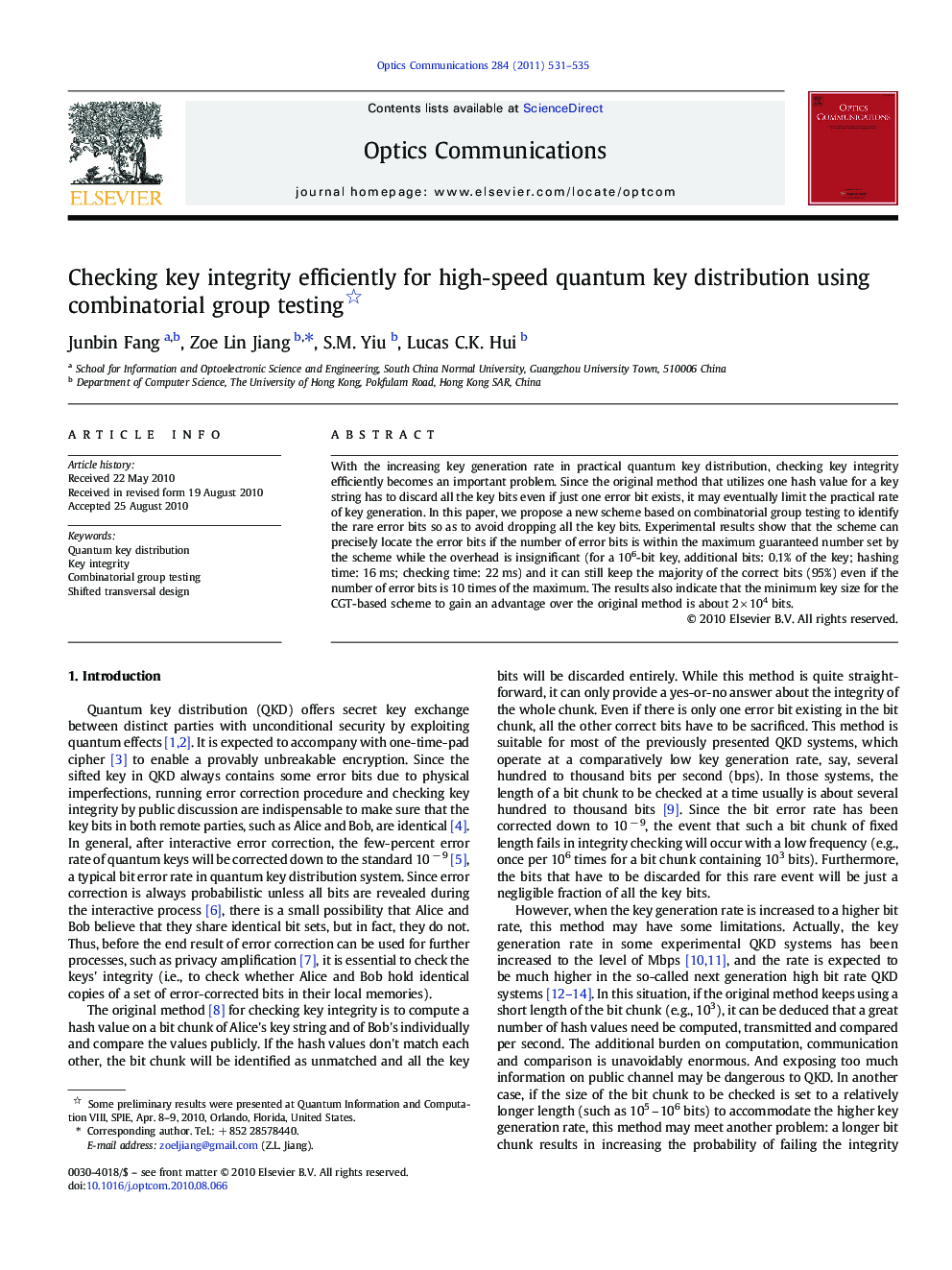| Article ID | Journal | Published Year | Pages | File Type |
|---|---|---|---|---|
| 1537889 | Optics Communications | 2011 | 5 Pages |
Abstract
With the increasing key generation rate in practical quantum key distribution, checking key integrity efficiently becomes an important problem. Since the original method that utilizes one hash value for a key string has to discard all the key bits even if just one error bit exists, it may eventually limit the practical rate of key generation. In this paper, we propose a new scheme based on combinatorial group testing to identify the rare error bits so as to avoid dropping all the key bits. Experimental results show that the scheme can precisely locate the error bits if the number of error bits is within the maximum guaranteed number set by the scheme while the overhead is insignificant (for a 106-bit key, additional bits: 0.1% of the key; hashing time: 16Â ms; checking time: 22Â ms) and it can still keep the majority of the correct bits (95%) even if the number of error bits is 10 times of the maximum. The results also indicate that the minimum key size for the CGT-based scheme to gain an advantage over the original method is about 2Â ÃÂ 104 bits.
Related Topics
Physical Sciences and Engineering
Materials Science
Electronic, Optical and Magnetic Materials
Authors
Junbin Fang, Zoe Lin Jiang, S.M. Yiu, Lucas C.K. Hui,
